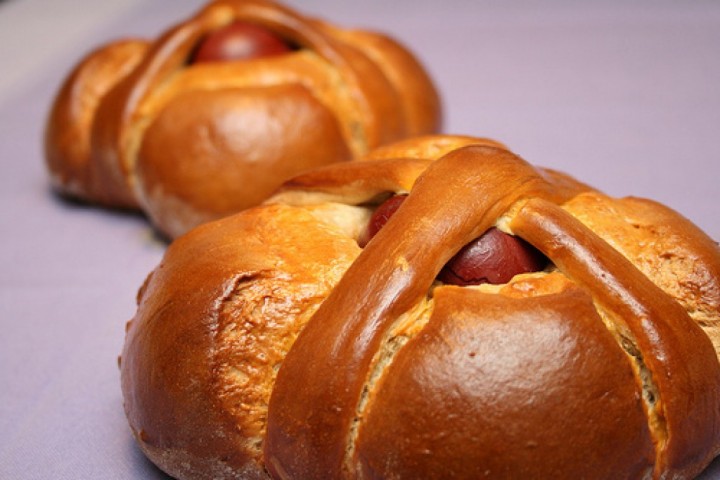Easter in Portugal
What dishes do the Portuguese eat to celebrate the Resurrection of Christ? Do they bake Easter cakes or paint eggs? Find out by reading this short article.

Christians begin preparing for Easter with a 40-day fast. It is during this period that churches are decorated with purple curtains as a reminder of prayer, reflection, abstinence, and the rejection of fun, fasting food and drink.
A week before Easter, Holy Week or Semana Santa begins. Holy Week reminds Christians of the Passion (suffering) of Christ, His Death and Resurrection.
In the city of Braga, Holy Week has its own rich programme, with performances, concerts, exhibitions, and processions of the cross attracting both Portuguese and tourists. Here is the website with the programme of Semana Santa 2024.
From Sunday to Saturday, there are massas in churches and processions in towns and villages.
Each day of this Holy Week is dedicated to a specific event from the last days of Jesus' earthly life.
On Palm Sunday, people go to church with bouquets of olive and rosemary branches and take part in a procession with palm branches. They remember how Jesus entered Jerusalem to celebrate Passover and how he was greeted with tree branches. Holy Monday — the expulsion of the traders from the temple. Holy Tuesday — Jesus tells the apostles about the future betrayal of one of them and the denial of the other about his friendship with Jesus. Holy Wednesday — Judas "sells" the Master for 30 coins. Holy Thursday — the arrest of Jesus. In some cities there is a night procession, a call to repentance and confession.
Holy Friday — the trial, the ascent to Calvary, Jesus' death on the cross. Holy Friday is a public holiday in Portugal. Keep this in mind, as banks, government offices, and some cultural institutions may be closed.
Portuguese call Holy Saturday "Alleluia Saturday". Because during Lent, the word "alleluia" was not mentioned in the liturgies, and during the night service from Holy Saturday to Easter Sunday, it is mentioned for the first time after 40 days of oblivion. The pain, despair, and tears of Mary as she mourns her son are remembered.
And finally, Easter is the Resurrection of Jesus.
Portuguese cleaned their homes, and in villages where it is customary, they repainted the outside, so that the padre could come to a clean house for the Easter blessing! Those who wanted to, observed a strict fast, or at least Friday fasts, in memory of the day Jesus was crucified.
During the Holy Week, many people attended various religious processions, and on the night of the Bright Resurrection, churches held a night service...
And what makes Easter different from other days in terms of gastronomy?
First of all, people eat Easter cake. This buttery cake, without candied fruit, nuts or raisins, sometimes with lemon zest or herbs for flavour, is called folar in Portugal and is sometimes baked with eggs painted in onion skins. Folar and almonds in a glaze that symbolises Easter painted eggs are given to friends and family. Candy, as you can see, has replaced the traditional painted eggs. In northern Portugal, Easter is not sweet, but savoury, with sausage and olive oil!
The main dish of the festive Easter table in different regions will be a lamb, goat or suckling pig baked in a wood-burning oven. Just like at Christmas, the whole family will gather at a big table!
Publication date: 15 April, 2017